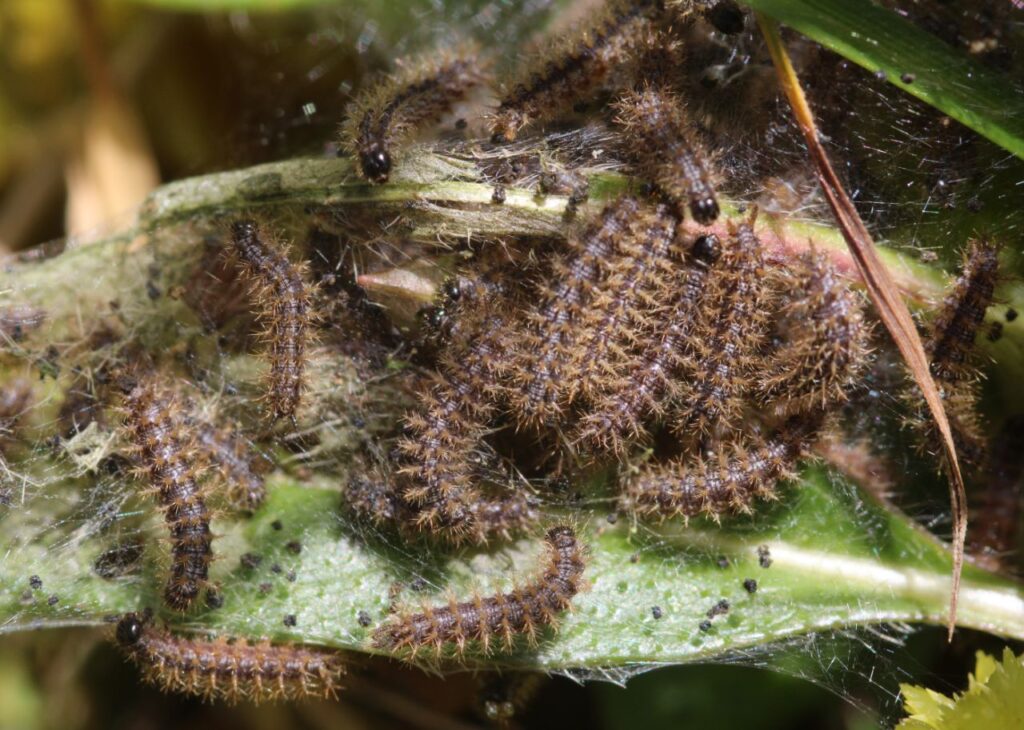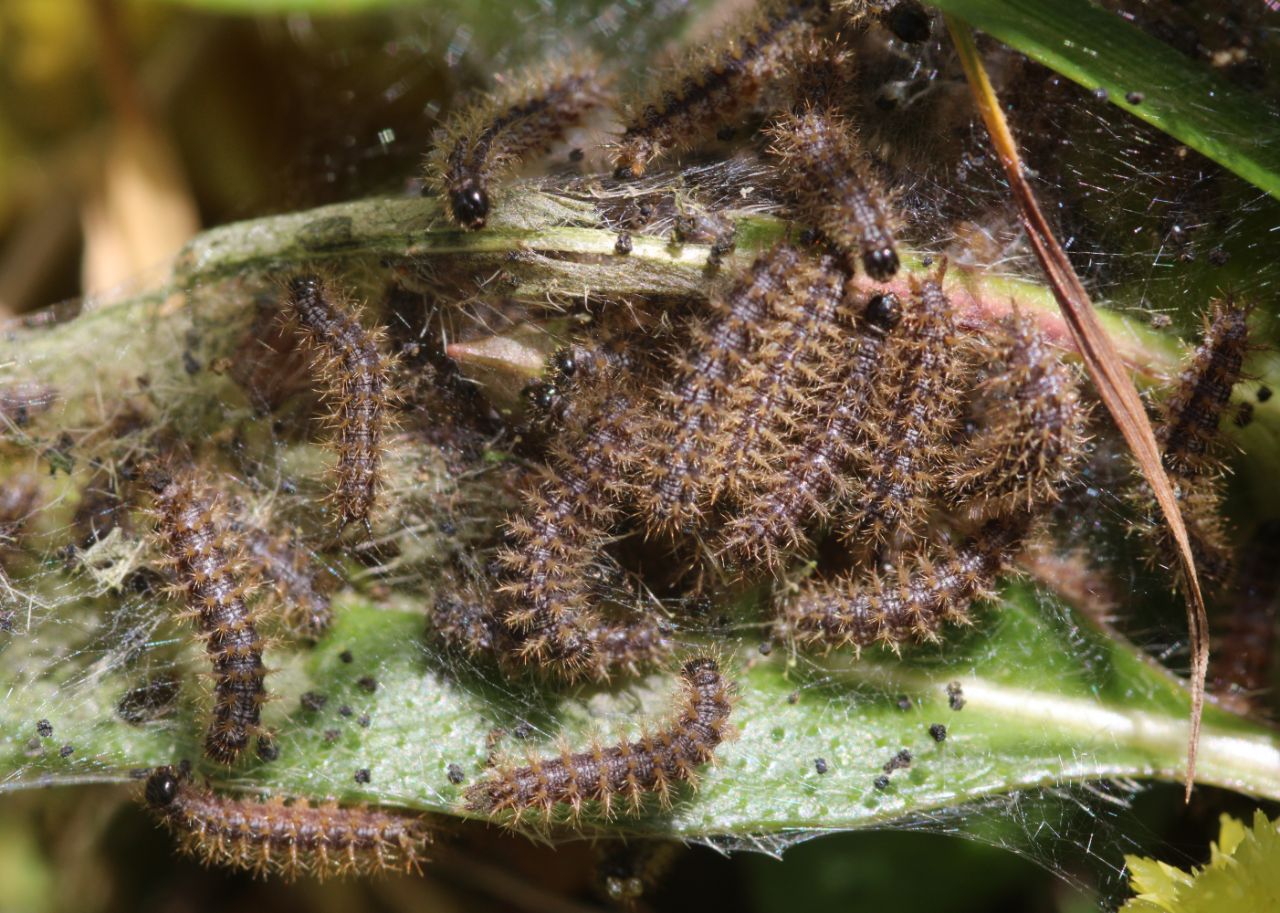With limited dispersal abilities and precise habitat requirements, the Marsh Fritillary has suffered greatly from fragmentation of the countryside. In Cornwall, this butterfly occupies damp grassland with an abundance its larval foodplant, Devil’s-bit Scabious – a habitat that is readily lost through either too much or too little grazing. Robin Curtis shares observations from Marsh Fritillary colonies on the Lizard, explaining how management is influencing population trends, and how innovative techniques are being used to survey larvae.
At a recent garden party on the Lizard, in Cornwall, I was introduced to the head of a well-known conservation organisation. ‘The problem with rare butterflies’, I was informed, ‘is that they are just too fussy.’ We were discussing the Marsh Fritillary Euphydryas aurinia and, to be honest, I could understand the person’s perspective.

